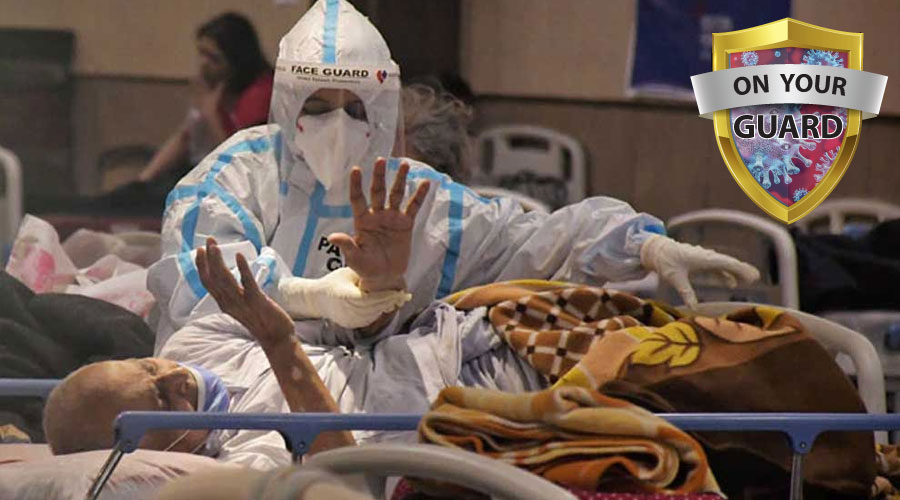First things first: Contracting Covid-19 after having received full two doses of the vaccine, known as breakthrough infection, is not out of the ordinary. A “very small number” of people have indeed fallen ill with Covid after being vaccinated, notes the Indian Council of Medical Research (ICMR), but this does not undermine the efficacy of the vaccine. In fact, the vaccines that are being used in the world now after approvals have been made to protect against the disease and not the transmission of the virus.
According to data provided by Director General of ICMR Dr Balram Bhargava, of the 17 million people who got a second dose of either vaccine (Covishield or Covaxin), 5,709 people got Covid. This suggests that 3 persons per 10,000 tested positive, which is higher than the rate reported by Centres for Disease Control (CDC) in the US, 8 in 100,000. “It is important to note,” say CDC guidelines, “that reported vaccine breakthrough cases will represent an undercount. The surveillance system is passive and relies on voluntary reporting from state health departments which may not be complete. Also, not all real-world breakthrough cases will be identified because of lack of testing. This is particularly true in instances of asymptomatic or mild illness.”
Dr Samiran Panda, who heads the epidemiology division of ICMR concurs when he says that estimates on breakthrough infections, collated from the Co-WIN database, were based on self-reporting. He agrees that there would be many more who have got infected after the second dose but that only those coming down with significant symptoms are likely to report it. “Those with mild symptoms, or who are asymptomatic, will not follow up. The message of vaccination is that it protects against disease,” he says.
But what could be the reasons for such infections? There are two to begin with. One is the “highly transmissible” nature of the new variants of the virus. The second is exposure to patients. As Dr Panda says that healthcare workers and frontline workers were reporting breakthrough infections because of their constant high exposure to Covid patients. According to data collated at the end of April, over 12.1 million healthcare and frontline workers have got the second dose, as opposed to over 9 million people above 45 years of age. Lab studies for Covaxin on the “UK variant (B.1.1.7)” and “Indian variant (B.1.617)” suggest that it effectively neutralises the virus. However, studies on the AstraZeneca vaccine show that its efficacy is reduced when faced with the UK and the South African variant.
As per CDC, there were 88 deaths for 87 million people who were fully inoculated with the Pfizer, Moderna and Johnson & Johnson vaccines. This means that one in a million will die from Covid despite being vaccinated.
Experts agree that the one aspect of the pandemic that scientists and virologists are watching closely is the emergence of new variants of the coronavirus. Some of these new mutations could evade immune responses in vaccinated individuals _ who could then require booster shots. But that is in the long run.
For now, says Adi Stern, an evolutionary virologist at Tel Aviv University, there aren’t enough breakthrough infections pegged to variants to merit the use of updated shots. “There are going to be (breakthrough infections) no matter what,” Stern told New Science, the century-old US magazine dedicated to providing independent and unbiased coverage of science. “We need to keep an eye on the variants, but still I think we also have to trust the vaccine itself because we have evidence: It works,” she adds.
PS: The contents of this column (source: Union ministry of health, WHO, CDC) is intended as general information. For specific concerns, especially those with comorbidities, it is advisable to consult your family physician.












